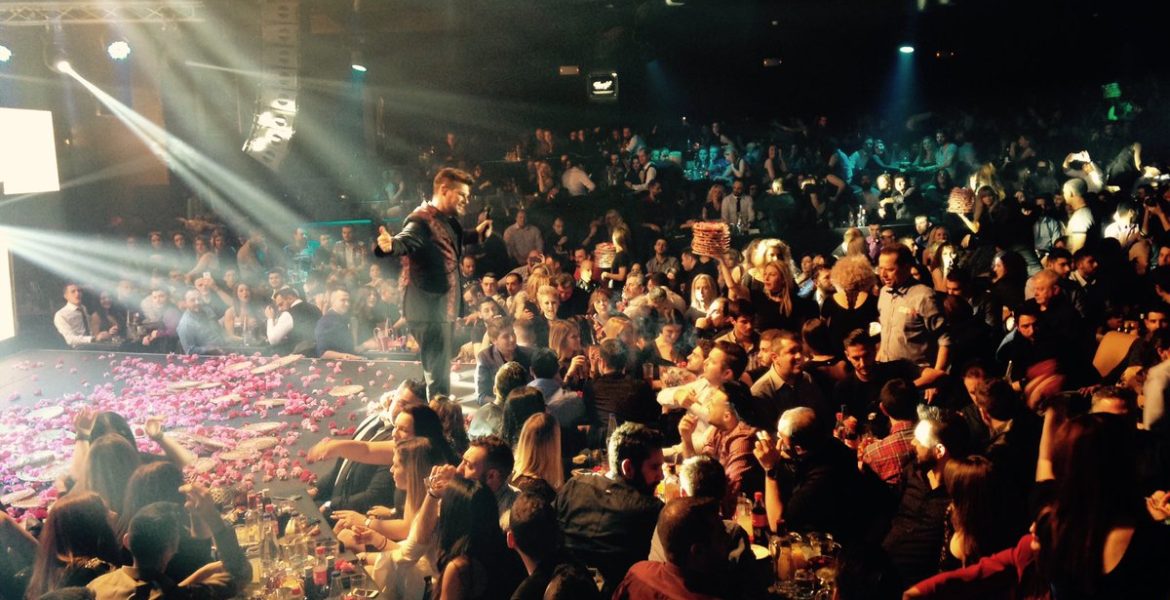Bouzoukia and Greek nightlife. A concept that intrigues many people (including the Greeks themselves) with its ever-transforming nature and capacity to offer unique, unrestrained forms of entertainment and activity during every season. Be it high-class restaurants by the sea, rooftop bars with unobstructed views of the Acropolis, or packed music venues built in cobbled-stone streets; there is something for everyone in the after-dusk hours of cosmopolitan Greece.
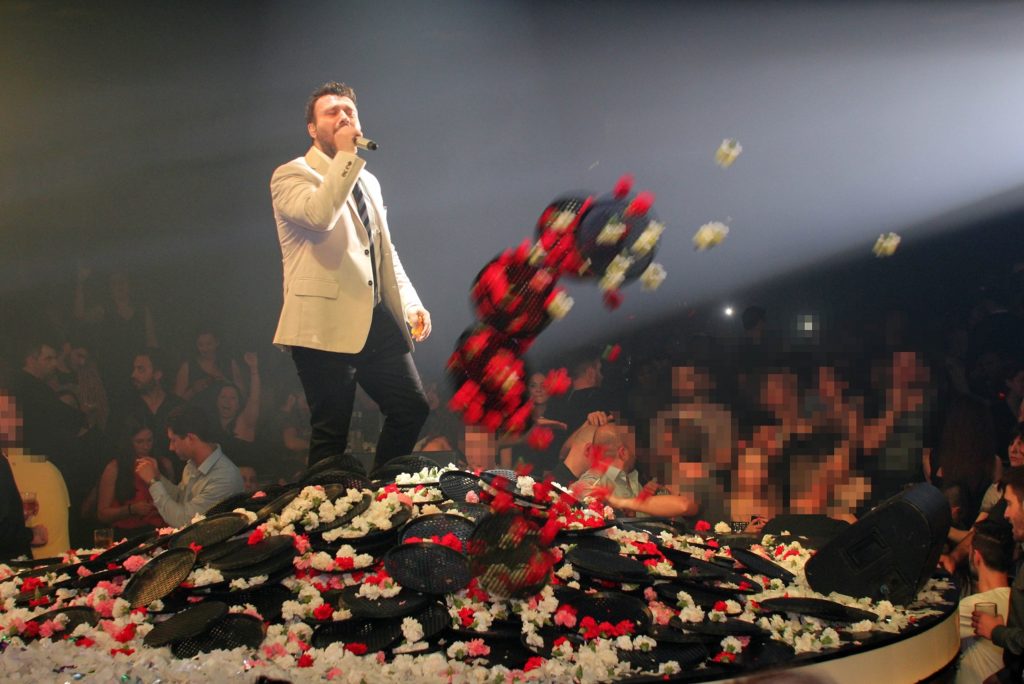
A modern mythical creature
At its core, modern Greek nightlife is likened to a mythical chimera: it can take many shapes and forms and appears diverse and appealing, according to personal taste. You may be in it for the non-stop, relentless partying and after-hours clubbing, seeking the thrill, the excitement, the rush. Maybe you admire the countless little bars and pubs, each distinct with their interior design and musical style, preferring the laid back atmosphere rather than a wild night out. Or perhaps you are more into an ouzeri or a taverna, where you can taste some exquisite Greek cuisine while listening to live musicians.
It doesn't really matter what you prefer, as nightlife entertainment was, and still is a great part of Greek tradition, culture, spirit, and folklore.
And the king of Greece’s favorite pastime is the Bouzoukia.

Melodies for the ears and the soul
“Bouzouki” is a small string instrument, primarily used in conjunction with other string instruments at traditional musical concerts. It produces a pleasantly high-pitched sound and lends itself for fast, explosive solos, in the hands of a true master.
Whilst they hold little resemblance with their predecessors of the ’60s, ’70s, and ’80s, modern-day Bouzoukia are nightclubs specialising in live music, singing, dancing, and overall exuberant forms of music and motion. Although they function as contemporary music venues, equipped with state-of-the-art technological and digital apparatus and often times employ some of Greece's most popular artists as lead performers, they are, nonetheless, a relic of a glorious past – an artefact that endured its many alterations, additions and transformations, and is still here to remind Greek people of their ancestral heritage. As such, it is closely linked with nostalgic past tunes and melodies full of somberness, regret, but also passion and love. The Bouzoukia offer emotion and pathos in its most immaculate and authentic form.
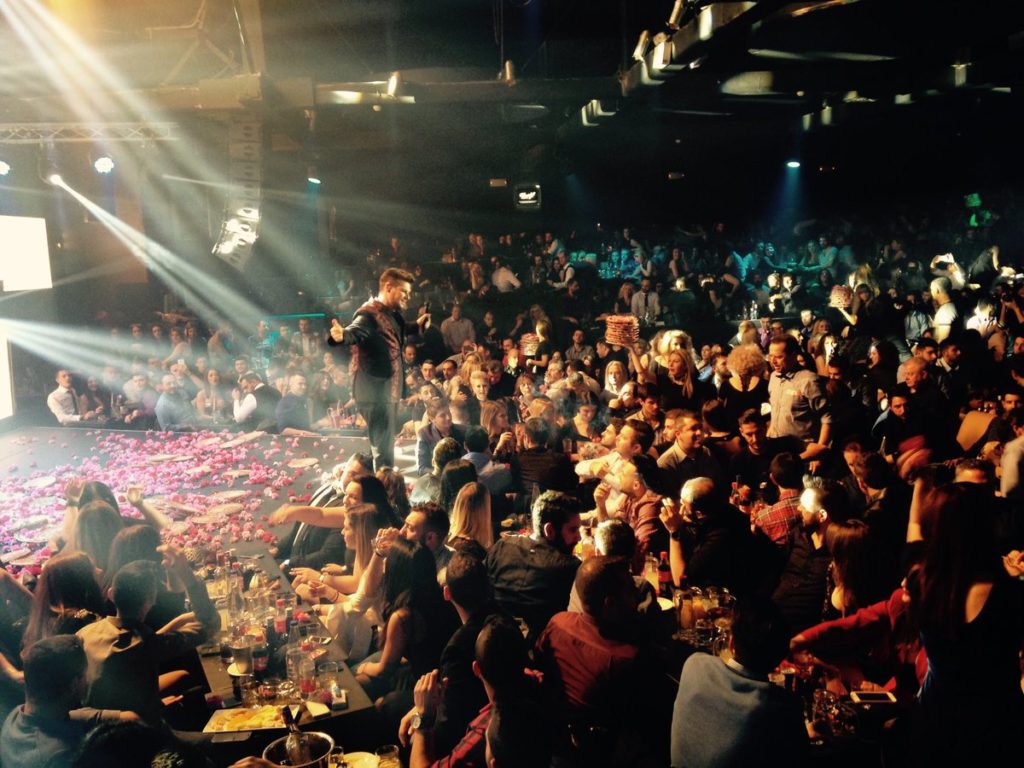
Spirited music for spirited people
“Let my hands be cut from the stem if I don’t learn to play this instrument”: these were the words of a young Markos Vamvakaris, the “Patriarch” of the Greek “Rebetiko” when he first heard the lyrical cries of the bouzouki. Six months later, he mastered the instrument’s darkest secrets, bringing “Rebetiko” to every Greek household and every Greek family. From there, as it appealed to so many people, it quickly found its way to nightlife music venues, gaining popularity that has yet to lose its great momentum.
Disparate kinds of urban Greek music were grouped together to create “Rebetiko”, which in melody and harmony constitutes a synthesis of European music, Greek Orthodox Ecclesiastical chants, ethic, Byzantine music, café music and the Turkish “Makam” (Ottoman art music). But for Greeks, it was so much more than a music genre – it was an attitude, a philosophy, a way to navigate through life.
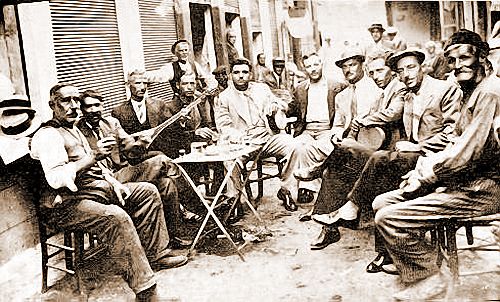
Birth of the Bouzoukia
Since its concept, rapid growth, and influence, “Rebetiko” has penetrated Greek lifestyle and entertainment earning it a home in music venues and nightclubs all over Greece. This is how the bouzoukia were born.
And these are some of the “titans” of the industry
Neraida
“Neraida” was a historic nightlife music venue situated in the beachfront of Athens, housing Greek legends such as Giannis Parios and Marinella during their first steps as singers and entertainers. It is said that it was here, in Neraida, that the long-lasting custom of shattering plates during exceptionally moving performances was prohibited by law, during the dictatorship of Giorgos Papadopoulos. Moreover, it was Marinella performing in Neraida who substituted throwing plates with throwing flowers on stage, and overall added a theatrical touch to the more urban aspect of the Bouzoukia.
Deilina
“Deilina” was founded in 1966 and it was home to Giorgos Zabettas, Viki Mosholiou, and the cinema star Nikos Ksanthopoulos. It soon proved to be a mainstay amongst the other nightlife venues of Athens, paving the way for performers such as Stratos Dionisiou and a tone shift from the harsher and more “street” vibes to mellower and more pop tones.
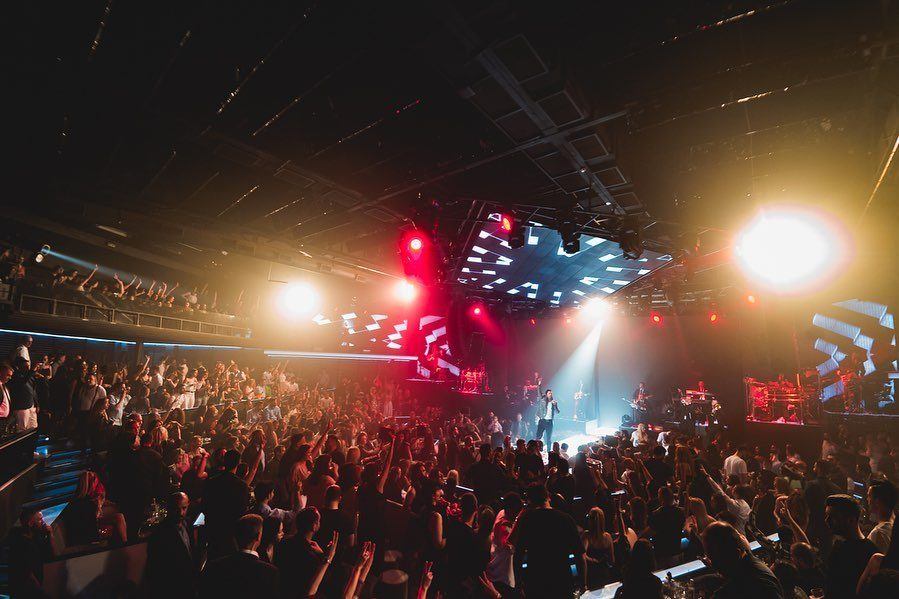
Fantasia
Poseidon Avenue was the destination of many Greek gents and ladies for their dose of nighttime entertainment during the ’60s, with Fantasia holding the record for “most broken plates ever photographed”. Indeed, this mountain of broken kitchenware was 100% authentic and usable, in contrast with the fake plastic ones that were used later on to ensure the safety of the performers. Two future prime ministers of Greece have partied inside these walls, namely Konstantinos Karamanlis and Andreas Papandreou. In regards to legendary figures of the Greek pentagram, names like Stratos Dionisiou, Grigoris Bithikotsis, Angela Dimitriou, Stamatis Kokkotas and Katerina Stanisi are but a few that sing on the hallowed stage of Fantasia. It is worthy to note that this music venue is still active and extremely popular.
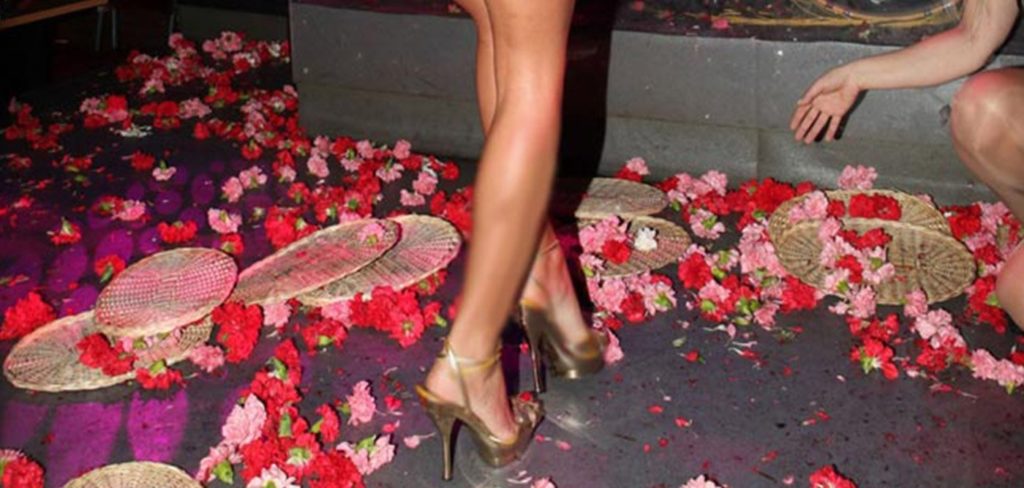
Can-Can
With a strong European influence, the music avenue Can-Can first unveiled its stage to the Athenian crowd in 1965, entertaining them with popular tunes and western dances for more than 25 years.
Asteria
“Asteria” was the nightlife music hub in Glyfada where the “titan” of Greek urban singing Notis Sfakianakis made his debut in the ’70s.
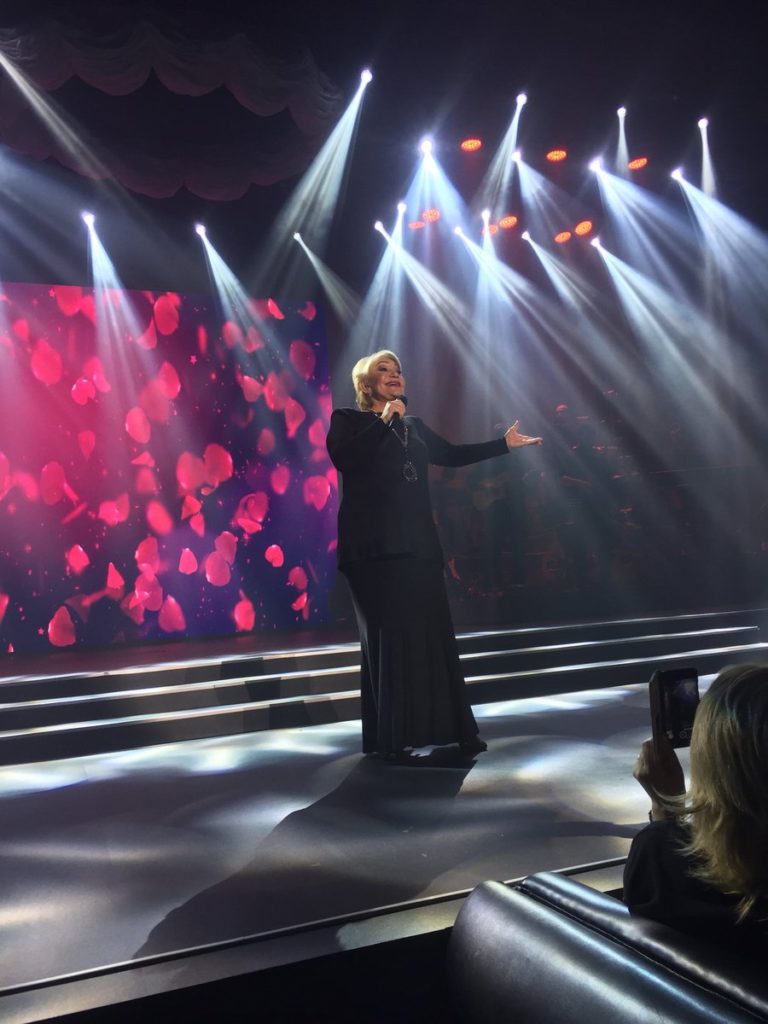
Diogenis Pallas
One of the largest Bouzoukia of its time, it was the ultimate hotspot in Athens during the ’80s and ’90s, with famous singers such as Pashalis Terzis, Marinella and Giannis Parios performing on its stage. Nowadays, it holds the name Diogenis Studios and is still very much in action.
Past and present intermingled
These are but a few examples of the rich history of the Greek Bouzoukia in Greece, that flourished in Athens and still loved by people all over the world. Modern clubs and nightlife music venues in Greece are in full bloom, with older ones resurfacing and new ones appearing almost every year, offering something truly fresh and unique for everybody.
In Greece, past, and present, day and night walk hand in hand- all you have to do is take a peek inside the doors!

